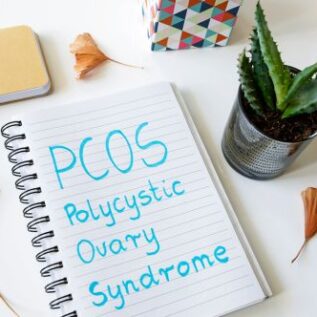
Discovering the 5 Types of PCOS
Did you know that Polycystic Ovary Syndrome (PCOS) is not a one-size-fits-all condition? Many medical professionals classify PCOS as a single kind, which ignores the syndrome’s complexity and is detrimental to people who are afflicted. It is essential to recognise that there are five different forms of PCOS in order to receive individualised treatment that focuses on the particular root cause of your symptoms for improved management.
What is PCOS?
The 5 Types of PCOS:
1️⃣ Insulin-Resistant PCOS:
Insulin-resistant PCOS is really common, actually – about 70% of women with PCOS have it. It’s when your body starts to kind of ignore insulin, which causes more insulin to hang around in your blood. This spike can boost male hormones and throw your body’s hormone balance off track. Symptoms often include weight gain, particularly around the abdomen, and a higher risk of developing type 2 diabetes.
2️⃣ Post-Pill PCOS:
Post-pill PCOS is when you start seeing PCOS-like symptoms after using certain hormonal medications, like birth control pills leading to a temporary hormonal imbalance. The good thing is that this type usually clears up and goes back to normal once you stop taking the medication. Women may experience menstrual irregularities, acne, or hair loss.
3️⃣ Immune-Related PCOS:
Immune-related PCOS is rooted in systemic inflammation, triggered by factors like diet, stress, or environmental toxins. Symptoms include fatigue, joint pain, and skin problems.
4️⃣ Adrenal PCOS:
Adrenal PCOS is due to an overproduction of male hormones by the adrenal glands. Key indicators are irregular periods and typical PCOS symptoms but without polycystic ovaries.
5️⃣ Genetic PCOS:
Genetic factors in PCOS can play a significant role. Symptoms vary, and understanding your family history is vital.
Take the First Step: Understanding Your PCOS Type for Better Management
Understanding your PCOS type is essential for better management, and your functional health practitioner plays a pivotal role in this journey. By asking the right questions and conducting thorough investigations, we can pinpoint the root cause of your PCOS, leading to the most effective treatment path. If you’re living with Polycystic Ovary Syndrome and are eager to discover which type you have, we’re here to assist. Book your free, no-strings-attached root cause analysis with us today. Once we identify the root cause, we can offer personalized advice tailored to significantly reduce your symptoms and help you manage your condition more effectively, marking the first crucial step towards improved health and well-being.



